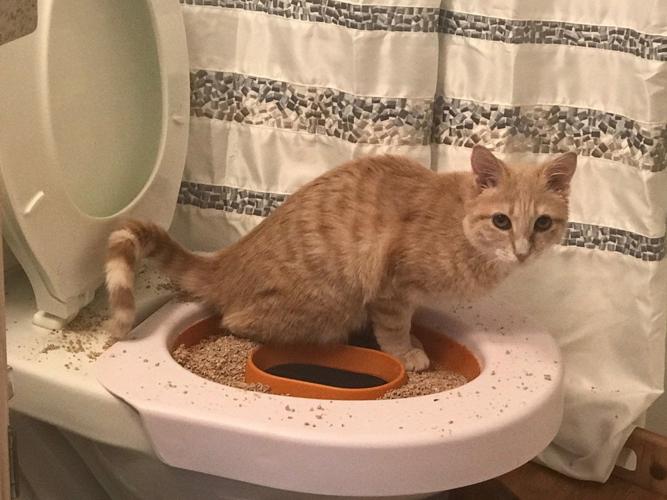We have discovered this great article on How to Dispose of Cat Poop and Litter Without Plastic Bags down the page on the net and think it made sense to talk about it with you over here.

Introduction
As feline proprietors, it's essential to be mindful of just how we get rid of our feline close friends' waste. While it might appear convenient to flush feline poop down the bathroom, this method can have damaging repercussions for both the atmosphere and human wellness.
Alternatives to Flushing
The good news is, there are more secure and extra accountable methods to throw away feline poop. Think about the following choices:
1. Scoop and Dispose in Trash
One of the most common method of getting rid of cat poop is to scoop it right into a naturally degradable bag and toss it in the trash. Make sure to use a committed litter inside story and deal with the waste without delay.
2. Use Biodegradable Litter
Select biodegradable feline clutter made from materials such as corn or wheat. These trashes are eco-friendly and can be securely dealt with in the trash.
3. Hide in the Yard
If you have a backyard, consider burying pet cat waste in a designated area far from veggie yards and water sources. Make sure to dig deep sufficient to prevent contamination of groundwater.
4. Install a Pet Waste Disposal System
Invest in a pet waste disposal system specifically made for pet cat waste. These systems make use of enzymes to break down the waste, minimizing odor and environmental influence.
Health Risks
Along with ecological issues, flushing pet cat waste can also posture health and wellness risks to human beings. Feline feces may have Toxoplasma gondii, a bloodsucker that can trigger toxoplasmosis-- a potentially extreme disease, particularly for expecting women and people with weakened body immune systems.
Environmental Impact
Purging cat poop presents hazardous pathogens and bloodsuckers right into the supply of water, posturing a significant danger to water ecological communities. These pollutants can negatively influence aquatic life and compromise water quality.
Final thought
Responsible pet dog ownership extends past providing food and shelter-- it likewise includes correct waste monitoring. By avoiding purging feline poop down the bathroom and going with different disposal approaches, we can minimize our ecological impact and secure human health and wellness.
Why You Should NEVER Flush Cat Poop (and/or Litter) Down Your Toilet
The Problem with Litter
The main function of litter is to solidify and adhere to your cat’s waste. While this makes litter excellent for collecting cat poop and urine, it’s also the exact property that makes it a nightmare when flushed down the toilet.
Cat litter can and will clog pipes. There is non-clumping litter, but it’s still quite heavy and can build up in pipes. This is true even of supposed “flushable litter.”
The problems only compound when the litter is already clumped into cat waste. Toilet paper is among the more flushable things, and even too much of that will clog a toilet.
The Problem with Cat Poop
Sewers and septic systems are designed with human waste in mind. The microbes that help break down human waste don’t work on cat waste. Additionally, cat poop plays host to the parasite Toxoplasma gondii.
When flushed, this parasite can enter the environment in places it was never meant to, posing a risk to pregnant women, their unborn children, and other people with compromised immune systems. While it might not seem possible, flushing cat poop can indeed introduce this parasite to the public water supply.
These reasons are why, even if you’ve trained your cat to go on the toilet and flush, which is possible, it’s still not a good idea. Also, pregnant women and the immunocompromised shouldn’t change litter, either.
How to Handle Litter
The best way to handle litter is to simply put it in a plastic bag and place it in the trash. Avoiding environmental risks and possible plumbing damage is worth the extra effort.
You can also invest in devices that seal away your cat’s waste in a separate compartment, so you don’t have to change the litter nearly as often. They’re also safer for pet owners because they limit the possibility of Toxoplasma gondii exposure.
Disposing of litter the old-fashioned way will ensure you won’t have to worry about any issues that flushing the waste can potentially cause.
Take Care of Clogged Pipes with Stephens Plumbing, Heating & Air Conditioning
The reasons you should never flush cat poop down your toilet are numerous, but sometimes the inevitable happens despite your best efforts.
Stephens Plumbing, Heating & Air Conditioning is ready to help if you’re experiencing litter-blocked plumbing. Whether you need us in an emergency or want to schedule regular maintenance, we’re here for you.
https://www.stephensplumbing.net/bathroom-plumbing/never-flush-cat-poop-down-your-toilet/

We were made aware of that write-up on How to Dispose of Cat Poop and Litter Without Plastic Bags from someone on a different website. Don't hesitate to set aside a second to share this content if you enjoyed reading it. Thanks for going through it.
Visit Site